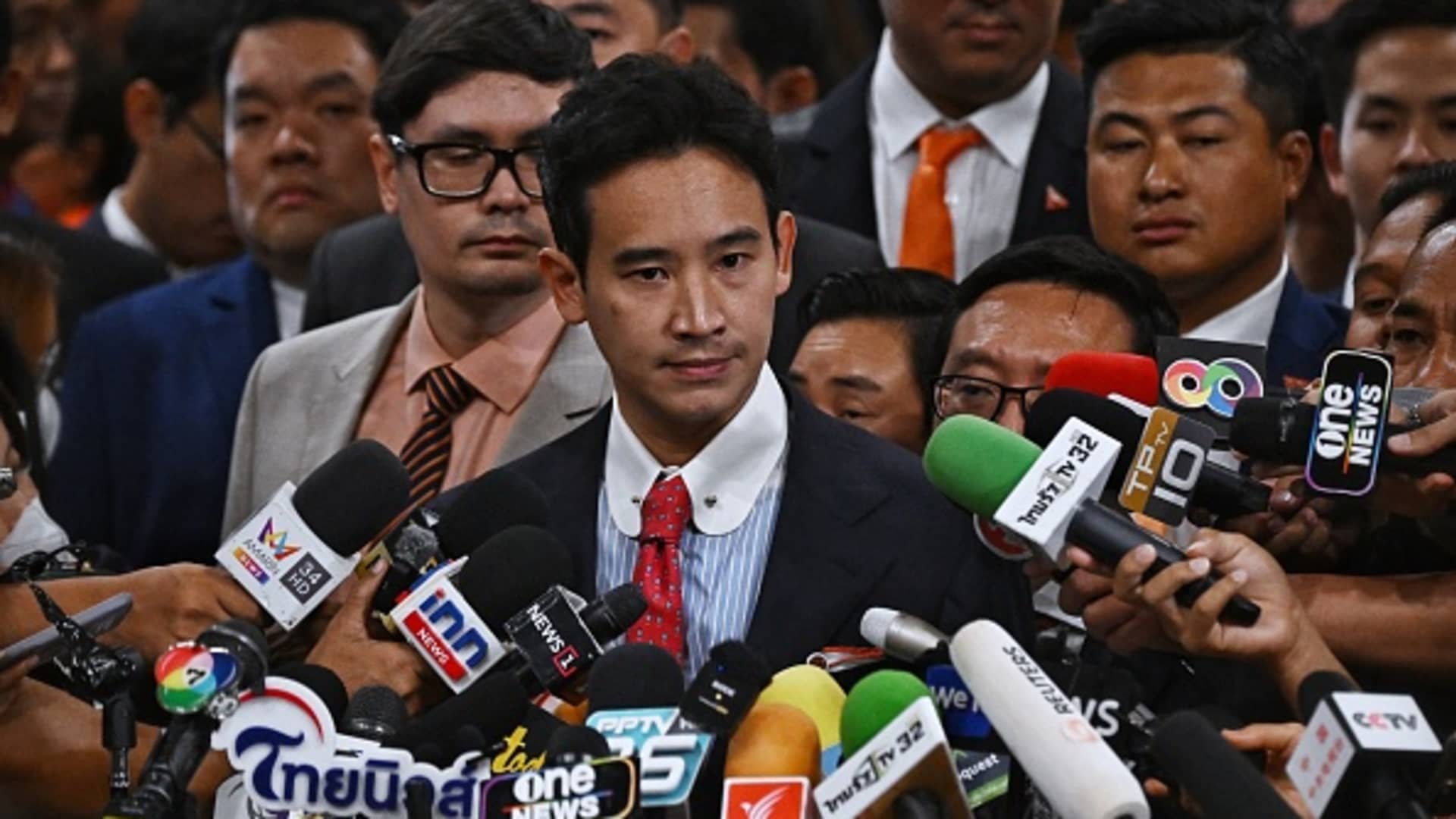Thailand’s Pita Limjaroenrat may have another chance at becoming the country’s prime minister next week, but his path to power is uncertain, particularly if the leader of the Move Forward Party does not back down from his commitment to amend a law that prohibits criticism of the monarchy. In the first parliamentary vote, Limjaroenrat fell short by 51 votes of the majority he needed from the 749 members of Thailand’s bicameral National Assembly. While he gained 311 votes from his coalition, he only received 13 out of 250 in the Senate.
This reflects the deep divisions and mistrust that royalist senators have towards Limjaroenrat and his anti-establishment agenda, which poses the risk of prolonged political turmoil in Thailand. The delay in forming a new government or the installation of a prime minister without a popular mandate could lead to large-scale protests. Moody’s Investors Service analyst Grace Lim warns that persistent political tensions could undermine Thailand’s institutional frameworks and hinder the government’s ability to execute macroeconomic policies and address long-term issues.
Another vote is planned for Wednesday, and Limjaroenrat will have the opportunity to stand for prime minister if nominated again by his coalition. Otherwise, the Pheu Thai party may put forward its own candidate from the three candidates it previously suggested. However, the move to amend Article 112 of Thailand’s criminal code, which prohibits criticism of the monarchy, is a major point of contention. Move Forward Party’s proposed amendments aim to reduce the prison sentence for defamation of the king, queen, heir, or regent. The younger generation in Thailand is disillusioned with the royalist establishment due to the use of this law against young protesters in 2020.
Despite facing opposition and obstacles, Limjaroenrat remains determined to convince senators to align with the will of the people. Move Forward lawmakers are also seeking to exclude junta-appointed senators from participating in the vote by proposing an amendment to the constitution. However, passing this amendment requires a significant number of votes and approval from various parties.
Move Forward’s reform agenda, which targets the monarchy, monopolies, and the military, resonated with young voters and propelled them to a surprise majority in the elections. But their slim majority makes their agenda vulnerable to resistance from the institutions they seek to reform. The constitutional court’s rulings on Limjaroenrat’s eligibility and the constitutionality of Move Forward’s plan to amend the lese-majeste law pose key risks. These developments mirror what happened with the dissolution of the Future Forward party, which faced disqualifications and legal challenges.

